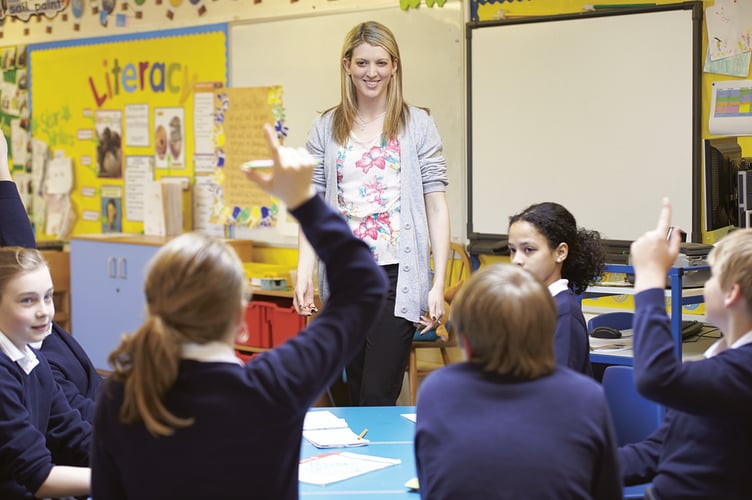Cornwall children’s speaking and reading skills have improved following the coronavirus pandemic, new figures show.
While children across England have improved their phonics skills in the last year, they remain worse than before successive lockdowns in 2020 and 2021.
The Association of School and College Leaders said the recent improvement is a testament to the “superb work of school staff” despite inadequate government investment.
Department for Education figures show 82 per cent of children aged between five and seven in Key Stage One in Cornwall met the expected standard in a range of phonics tests, which assess their speaking, reading and pronunciation.
This was up from 77 per cent the year before, and rose above pre-pandemic levels of 81 per cent in 2018-19.
Nationally, 79 per cent of Key Stage One children met the expected standard in phonics assessment – up from 75 per cent, but below 82 per cent in 2018-19.
Tiffnie Harris, primary and data specialist at the ASCL, said the figures were “great”, and heralded the hard work of schools throughout the pandemic.
Ms Harris said: “Young children’s early learning was affected by that disruption and it is a testament to the superb work of school staff that results are improving despite the lack of adequate government investment in education recovery.
“However, schools are facing severe challenges because of staff shortages, underfunding, and high rates of child poverty, and it is vital that the Government addresses these issues.”
The figures also show more children in Cornwall reached the expected standard in reading, with 65 per cent and 68 per cent displaying the requisite reading skills at Key Stage One in 2021-22 and last year respectively.
Similarly, children’s writing skills also improved in the last year, up from 55 per cent to 58 per cent.
Across England, 68 per cent of Key Stage One pupils met the expected standard in reading, up from 67 per cent in 2022. Similarly, 60 per cent met the expected standard in writing, up from 58 per cent in 2022. However, attainment in both subjects remained below pre-pandemic levels of 75 per cent and 69 per cent.
A Department for Education spokesperson said it is “pleased to see that pupils are continuing to catch up on learning following the pandemic”.
They added: “We have made £5 billion available since 2020 for education recovery initiatives, which have supported millions of pupils in need of extra support.”





Comments
This article has no comments yet. Be the first to leave a comment.